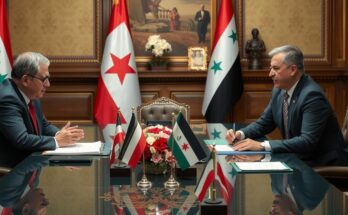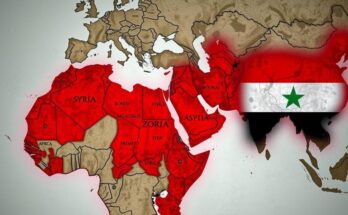The Amhara region of Ethiopia faces escalating violence, exemplified by the killing of Asbera Mohamednur by military forces, witnessed by her traumatized two-year-old child. This incident reflects a broader pattern of attacks on the Amhara ethnic group, alongside mass arrests and ethnic persecution amidst ongoing conflict. The global silence on these human rights violations has prompted calls for accountability and intervention.
The ongoing strife in the Amhara region of Ethiopia has resulted in the tragic loss of a woman named Asbera Mohamednur, who was killed in an attack by the Ethiopian military. Eyewitness accounts indicate that this brutal event took place in the Shoa Asager Woreda, Soten Kebele, where Mohamednur was found with multiple bullet wounds to her face and neck. Next to her, her two-year-old child, while physically unscathed, has endured profound psychological trauma due to the incident. Witnesses characterized this violence as part of a disturbing trend of assaults on the ethnic Amhara population, with a series of attacks and alleged ethnic cleansing operations reported across the region. Specifically, military actions including drone strikes have targeted civilian areas in various towns—resulting in significant loss of life, notably among women and children. The conflict escalated in August 2023, following confrontations between national forces and the Fano militia, which is said to advocate for the Amhara people, reflecting their longstanding grievances regarding systemic discrimination, massacres, and displacement. Notably, the mass arrests of Amharas by federal police in the capital, Addis Ababa, have sparked outrage, with affected families facing intimidation when seeking information on their detained loved ones. Recent militarized actions have included drone strikes in the North Shewa Zone, which have left several civilians dead. The Ethiopian Human Rights Commission has documented various atrocities, including killings, injuries, loss of property, and the displacement of countless individuals. Community reports also noted extensive disruptions to daily life, such as internet blackouts, looting, and assaults on civilians and businesses. The global silence surrounding these events has prompted criticism from local advocates who stress that there is ample evidence of human rights violations, yet international human rights organizations have failed to respond effectively, allowing the violence to persist unhindered. Reports have emerged of: – Extrajudicial Killings: Executions conducted without trial during military operations to root out opposition. – Mass Arrests: Thousands of individuals detained, often without lawful justification, leading to overcrowded prison conditions lacking adequate health care. – Persecution of Christians: Over 30 churches were destroyed between 2018 and 2019, with ongoing violence against Christian communities further inflaming ethnic and religious divisions. Human rights advocates have urgently called for accountability from both the Ethiopian government and its military forces. One anonymous witness expressed, “The Ethiopian government and military must be held accountable for their actions, and those responsible for these atrocities must face justice. The world cannot stand by while innocent people are massacred for their ethnicity. Sanctions and international pressure must be applied to stop the violence and protect the Amhara people.” The heart-wrenching image of Mohamednur’s young child left beside her lifeless body serves as a poignant call for justice and humanitarian intervention.
The conflict in Ethiopia’s Amhara region centers around ethnic tensions and political strife between the federal forces and local militias, particularly the Fano. The Amhara people have faced systemic violence, including mass arrests and extrajudicial killings, often targeting them for their ethnic identity amidst a backdrop of broader ethnic conflicts within the country. Reports of military actions leading to civilian casualties and human rights abuses have galvanized human rights organizations and advocates, yet these voices face challenges in drawing adequate international attention to their plight. With mounting evidence of atrocities and a seemingly indifferent global response, local populations worry about their safety and future.
The tragic killing of Asbera Mohamednur highlights the ongoing violence against the ethnic Amhara people in Ethiopia, exacerbated by actions taken by the military amid a complex conflict. The urgent need for accountability and intervention is underscored by the profound impact of these events on innocent civilians, particularly the tragic psychological effects on children left traumatized by violence. The international community must act to address these violations and uphold human rights in the region.
Original Source: www.dailynewsegypt.com



